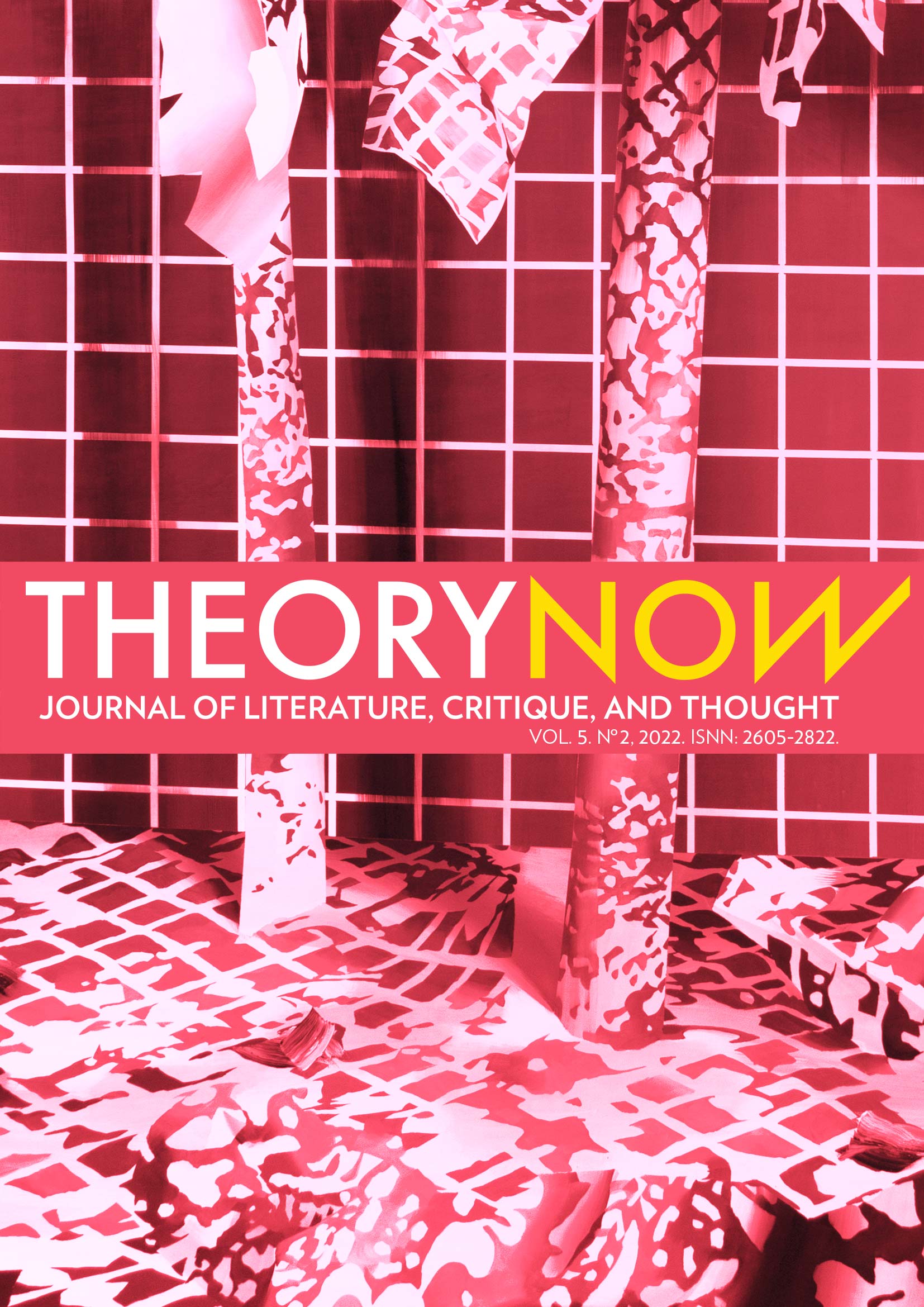Materialism and Finitude: Terry Eagleton's Marxism
DOI:
https://doi.org/10.30827/tn.v5i2.24462Keywords:
Terry Eagleton, materialism, finitude, Marxism, Herbert McCabe, LacanAbstract
This essay focuses on the change of emphasis–already announced in The Ideology of the Aesthetic (1997) and evident in Sweet Violence (2003)–that took place in Eagleton’s writing at the turn of the century: from showing a historicist scepticism about universals to advocating acknowledgment of human creatureliness (frailty, suffering, death) without which any political project would fail. This change coincided with an approach to a Thomist version of the Christian religion that reflected the influence on Eagleton of his friend the Dominican Herbert McCabe and with a profound interest in Jacques Lacan. The article argues that this change did not affect Eagleton’s Marxist faith or imply shunning political action. Rather, the turn concerned the materialist basis of Eagleton’s proposal of a just life. The appeal to existential forces entailed, on the one hand, a critique of left historicism and of the postmodern cult of culture and relativism and, on the other, an attempt to reinforce a Marxist critique of capitalism and the resistance against fundamentalism, Nihilism, and consumerism. To propose his idea of the just life Eagleton appropriates both the notion of Christian charity–the idea of self-realization through love and solidarity–together with the Thomist conception of morality rooted in the body, and Lacan’s imperative “do not give up on desire”.
Downloads
References
Adorno, Theodor W. Negative Dialectics. London, Routledge, 1990.
Anderson, Perry. “Components of the National Culture”, New Left Review, vol. 50, no. 1,1968, pp. 3-57.
Althusser, Louis. Essays in Self-Criticism. London, NLB, 1976.
Badiou, Alain. Being and the Event. London, Continuum, 2006.
Boltansky, Luc, and Eve Chiapello. The New Spirit of Capitalism. London, Verso, 2006.
Burkett, Paul. Marx and Nature: A Red and Green Perspective. Chicago, Haymarket, 2014.
Callinicos, Alex. Equality. Cambridge, Polity Press, 2000.
____. The Resources of Critique. Cambridge, Polity Press, 2006.
____. “Two Cheers for Enlightenment Universalism: Or Why It’s Hard to Be an Aristotelian Revolutionary”. Virtue and Politics: Alasdair MacIntyre’s Revolutionary Aristotelianism, Paul Blackledge and Kelvin Knight (eds.). Notre Dame, Notre Dame University Press, 2011, pp. 54-78.
Callinicos, Alex, Stathis Kouvelakis and Lucía Pradella (eds.). The Routledge Handbook of Marxism and Post-Marxism. New York, Routledge, 2020.
Dawkins, Richard. The God Delusion. New York, Bantam, 2006.
Eagleton, Terry. Criticism and Ideology. London, NLB, 1976.
____. “Wittgenstein’s Friends”, New Left Review, vol. 135, no. 1, 1982, pp. 64-90.
____. Literary Theory: An Introduction. Oxford, Blackwell, 1983.
____. The Ideology of the Aesthetic. Oxford, Blackwell, 1990.
____. Marx and Freedom. London, Phoenix, 1997.
____. The Gatekeeper. London, Allen Lane, 2001.
____. Sweet Violence. Oxford, Blackwell, 2003.
____. After Theory. London, Allen Lane, 2004.
____. Holy Terror. Oxford University Press, 2006.
____. “Lunging, Flailing, Mispunching”, London Review of Books, vol. 28, no. 20, 19 October 2006, pp. 32-34.
____. “Jameson and Form”, New Left Review, vol. 59, no. 2, 2009, pp. 123-137.
____. Reason, Faith, and Revolution: Reflections on the God Debate. New Haven, Yale University Press, 2010.
____. Why Marx was Right. New Haven, Yale University Press, 2011.
____. Materialism. New Haven, Yale University Press, 2016.
____. “When Will Christ Come Again?”, New Blackfriars, vol. 102, no. 1099, 2021, pp. 318-321.
Engels, Friedrich. “Dialectics of Nature”. Collected Works, XXV. Karl Marx and Friedrich Engels. Moscow, Progress, 1987, pp. 313-587.
Foster, John Bellamy. Marx’s Ecology: Materialism and Nature. New York, Monthly Re- view Press, 2000.
____. The Return of Nature: Socialism and Ecology. New York, Monthly Review Press, 2020.
Lukács, Georg. History and Class Consciousness. London, Merlin Press, 1990. MacIntyre, Alasdair. Dependent Rational Animals: Why Human Beings Need the Virtues. London, Duckworth, 1999.
Marx, Karl. “Contribution to the Critique of Hegel’s Philosophy of Law. Introduction”. Collected Works, III. Karl Marx and Friedrich Engels. Moscow, Progress, 1975, pp. 175-187.
____. “Economic & Philosophic Manuscripts of 1844”. Collected Works, III. Karl Marx and Friedrich Engels. Moscow, Progress, 1975, pp. 229-346.
McCabe, Herbert. Law, Love, and Language. London, Sheed & Ward, 1968.
____. God Still Matters. London, Continuum, 2002.
Saito, Kohei. Karl Marx’s Ecosocialism: Capitalism, Nature, and the Unfinished Critique of Political Economy. New York, Monthly Review Press, 2017.
Timpanaro, Sebastiano. On Materialism. London, NLB, 1975.
Trotsky, Leon Davidovitch. “Class and Art”. On Literature and Art. New York, Pathfinder, 1970, pp. 63-82.
Wood, James. “God in the Quad”, The New Yorker, 31 August 2009, pp. 75-79.
Downloads
Published
How to Cite
Issue
Section
License
Theory Now. Journal of Literature, Critique, and Thought is an immediate open-access publication which is available at no cost for readers and authors alike. Authors are not charged any kind of fee for the editorial processing of their articles. Reading, downloading, copying, distributing, printing, searching, linking or reusing all published articles for non-commercial uses is allowed on the condition of citing the author, the journal and the editing body. All intellectual material published in this journal is protected under a Creative Commons Attribution-NonCommercial 3.0 Spain license.
Dissemination of the articles in social (Facebook, Twitter, Linkedin, etc.) and scientific networks (ResearchGate, Academia.edu, etc.), public repositories at universities and other institutions, blogs, personal or institutional websites, Google Scholar, ORCID, ResearchID, ScopusID, etc. is strongly encouraged. In all cases, the intellectual property of the articles and any possible monetary profits derived from them belong exclusively to the authors.













